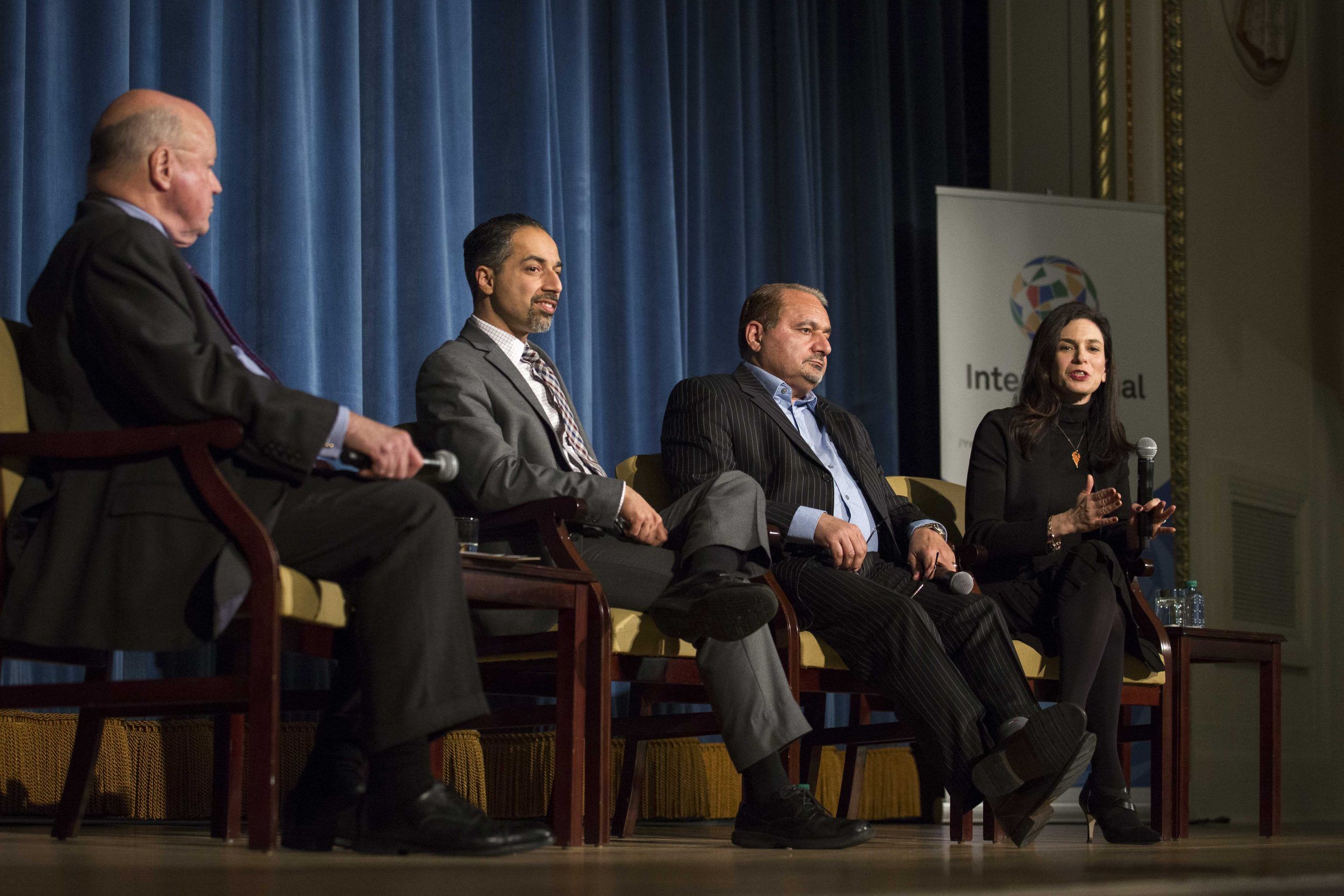
“The U.S. & Iran: Separating Facts from Fiction” at I-House
One highlight of my International House experience has been the ability to attend dinner conversations with global leaders and influencers who hail from diverse backgrounds and countries. Over the course of the year, I-House brings in a multitude of distinguished personalities, who come to I-House with a common goal of engaging Residents on socio-political affairs of the day. Keen on enriching both the minds and hearts of Residents, they bring with them not only their wealth of knowledge but also a passion for effecting change in their respective communities. Conversations with these global leaders and fellow Residents always leave me with a richer sensibility of the hopes and struggles encountered by other members of the human fraternity.
On Wednesday, January 30, 2019, I attended a lively dinner and foreign policy discussion at I-House that gave me a deeper understanding of the historical and contemporary issues surrounding relations between two countries. Titled “The U.S. and Iran: Separating Fact from Fiction,” the dynamic panel discussion provided I-House Residents with many thought-provoking and candid perspectives on the complex relations between U.S. and Iran. As a matter of fact, I learned, no diplomatic relations have existed between the two nations since 1980.
I-House President and CEO Calvin Sims welcomed the panelists to the stage. The panel comprised top leaders from the fields of diplomacy, journalism and history – namely, Ambassador Seyed Hossein Mousavian, a former diplomat who has served on official posts for Iran in nuclear negotiations and author of Iran and the United States; Laura Secor, a journalist with more than a decade of experience reporting on Iran; and Trita Parsi, a Middle East foreign policy expert and author of Losing an Enemy: Obama, Iran, and the Triumph of Diplomacy. Parsi is also the Founding President of the National Iranian American Council – a non-profit organization which aims to promote greater understanding between the American and Iranian people. Moderating this heavyweight panel was Ambassador Frank Wisner, former U.S. diplomat and the current Chair of the I-House Board of Trustees.
Ambassador Wisner’s belief that the event would be a rare and valuable learning opportunity for Residents was evident. At the start of the panel, he explained that the conversation aimed to broaden our understanding of modern Iran. “This conversation is not intended as an assessment of American foreign policy,” he shared. “Instead, it is for us to understand what’s at stake in the region, and to figure the road forward to greater stability.”
A variety of views on different aspects of U.S.-Iran relations were exchanged on stage that evening. Speaking from over three decades of experience in the Iranian political system, Ambassador Mousavian offered thoughts on the social, economic and political fabric of his country. He conveyed the importance of understanding the Iranian narrative and what Iran saw as its core interests in the region. Drawing on her latest book Children of Paradise: The Struggle For the Soul of Iran, Secor added to the discussion her insights on the psyche of a nation attempting to establish itself as a modern and progressive country post the 1979 revolution. Trita weighed in on the conversation with how he saw foreign policies from both the Obama and Trump administrations to have influenced U.S.-Iranian relations. With optimism, Trita expressed that the complex issues between the two nations could be resolvable with political will.
Concluding the panel, Ambassador Wisner summed up the takeaways from the evening’s discussion. He expressed his hope that Residents had gained an insider’s view on the complex relationship between Iran and the West, and more importantly, that we would now have a better sense of how great a challenge there is in seeking a political outcome to a 40-year-old affair.
Yibing (“Bing”) Quek is a Ph.D. student and Research Fellow at Columbia University, where she studies the intersections between ethics and education, and the field of higher education internationalization. She relishes all opportunities to examine and converse on both contemporary and enduring education phenomena. Previously, she was part of the Singapore Government’s Public Service Leadership Program and led curriculum and policy projects at the Ministry of Education and Ministry of Communications and Information. She is also an advocate for literacy, learning and women empowerment, and is currently a Women’s International Leadership (WIL) Fellow at International House, New York. Follow Bing on Twitter @bingquek, and connect with Bing on LinkedIn.